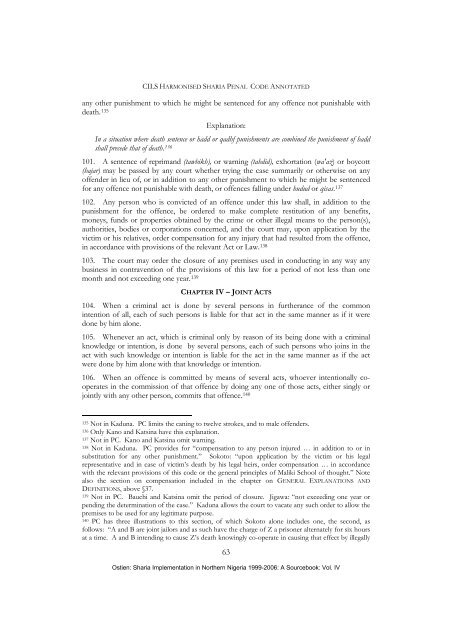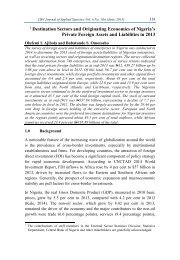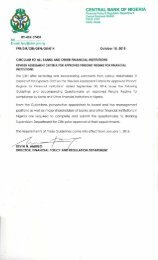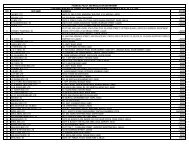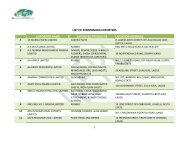vol_4_4_chapter_4_part_III
vol_4_4_chapter_4_part_III
vol_4_4_chapter_4_part_III
Create successful ePaper yourself
Turn your PDF publications into a flip-book with our unique Google optimized e-Paper software.
CILS HARMONISED SHARIA PENAL CODE ANNOTATED<br />
any other punishment to which he might be sentenced for any offence not punishable with<br />
death. 135<br />
Explanation:<br />
In a situation where death sentence or hadd or qadhf punishments are combined the punishment of hadd<br />
shall precede that of death. 136<br />
101. A sentence of reprimand (tawbikh), or warning (tahdid), exhortation (wa'az) or boycott<br />
(hajar) may be passed by any court whether trying the case summarily or otherwise on any<br />
offender in lieu of, or in addition to any other punishment to which he might be sentenced<br />
for any offence not punishable with death, or offences falling under hudud or qisas. 137<br />
102. Any person who is convicted of an offence under this law shall, in addition to the<br />
punishment for the offence, be ordered to make complete restitution of any benefits,<br />
moneys, funds or properties obtained by the crime or other illegal means to the person(s),<br />
authorities, bodies or corporations concerned, and the court may, upon application by the<br />
victim or his relatives, order compensation for any injury that had resulted from the offence,<br />
in accordance with provisions of the relevant Act or Law. 138<br />
103. The court may order the closure of any premises used in conducting in any way any<br />
business in contravention of the provisions of this law for a period of not less than one<br />
month and not exceeding one year. 139<br />
CHAPTER IV – JOINT ACTS<br />
104. When a criminal act is done by several persons in furtherance of the common<br />
intention of all, each of such persons is liable for that act in the same manner as if it were<br />
done by him alone.<br />
105. Whenever an act, which is criminal only by reason of its being done with a criminal<br />
knowledge or intention, is done by several persons, each of such persons who joins in the<br />
act with such knowledge or intention is liable for the act in the same manner as if the act<br />
were done by him alone with that knowledge or intention.<br />
106. When an offence is committed by means of several acts, whoever intentionally cooperates<br />
in the commission of that offence by doing any one of those acts, either singly or<br />
jointly with any other person, commits that offence. 140<br />
135 Not in Kaduna. PC limits the caning to twelve strokes, and to male offenders.<br />
136 Only Kano and Katsina have this explanation.<br />
137 Not in PC. Kano and Katsina omit warning.<br />
138 Not in Kaduna. PC provides for “compensation to any person injured … in addition to or in<br />
substitution for any other punishment.” Sokoto: “upon application by the victim or his legal<br />
representative and in case of victim’s death by his legal heirs, order compensation … in accordance<br />
with the relevant provisions of this code or the general principles of Maliki School of thought.” Note<br />
also the section on compensation included in the <strong>chapter</strong> on GENERAL EXPLANATIONS AND<br />
DEFINITIONS, above §37.<br />
139 Not in PC. Bauchi and Katsina omit the period of closure. Jigawa: “not exceeding one year or<br />
pending the determination of the case.” Kaduna allows the court to vacate any such order to allow the<br />
premises to be used for any legitimate purpose.<br />
140 PC has three illustrations to this section, of which Sokoto alone includes one, the second, as<br />
follows: “A and B are joint jailors and as such have the charge of Z a prisoner alternately for six hours<br />
at a time. A and B intending to cause Z’s death knowingly co-operate in causing that effect by illegally<br />
63


